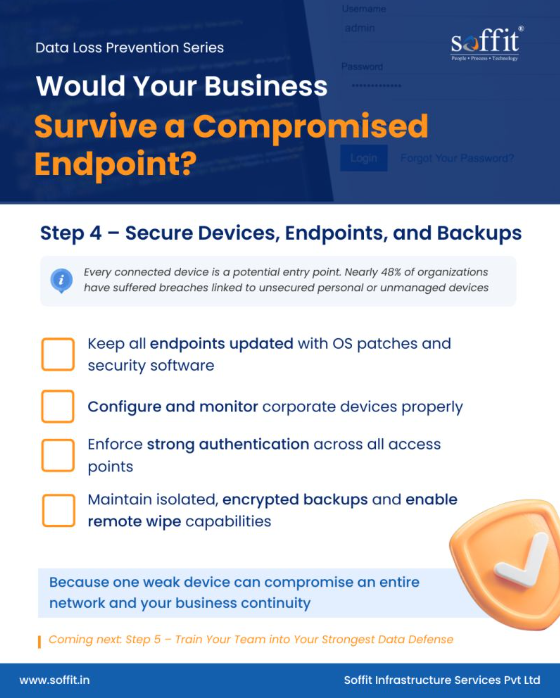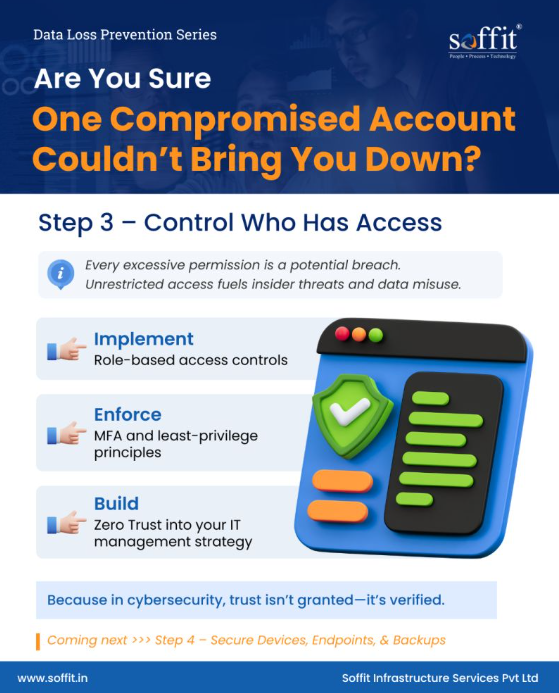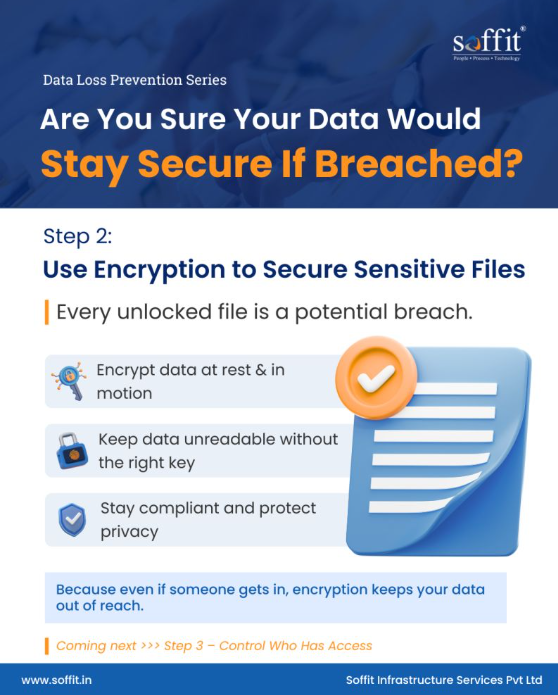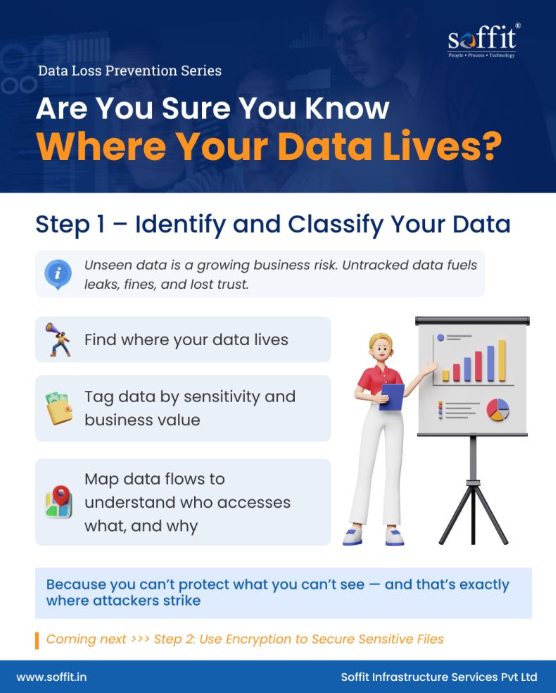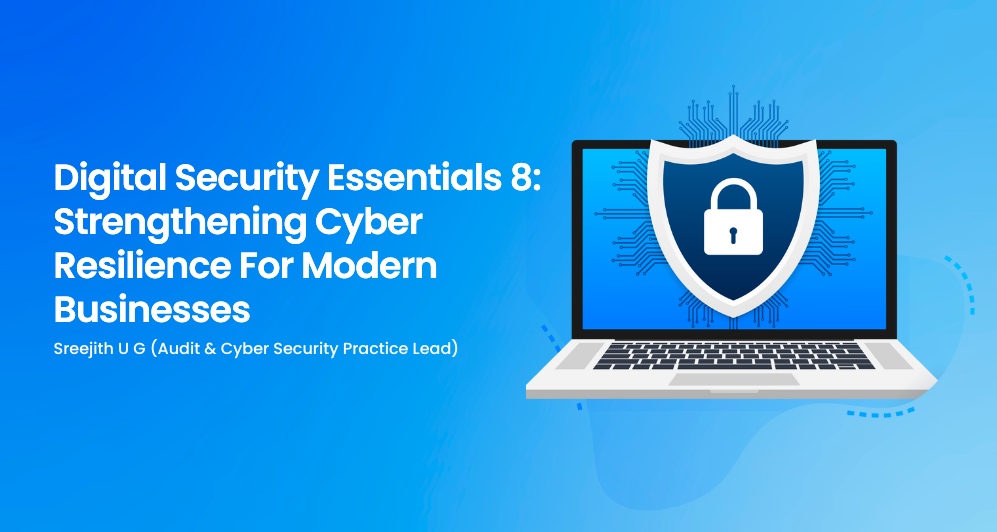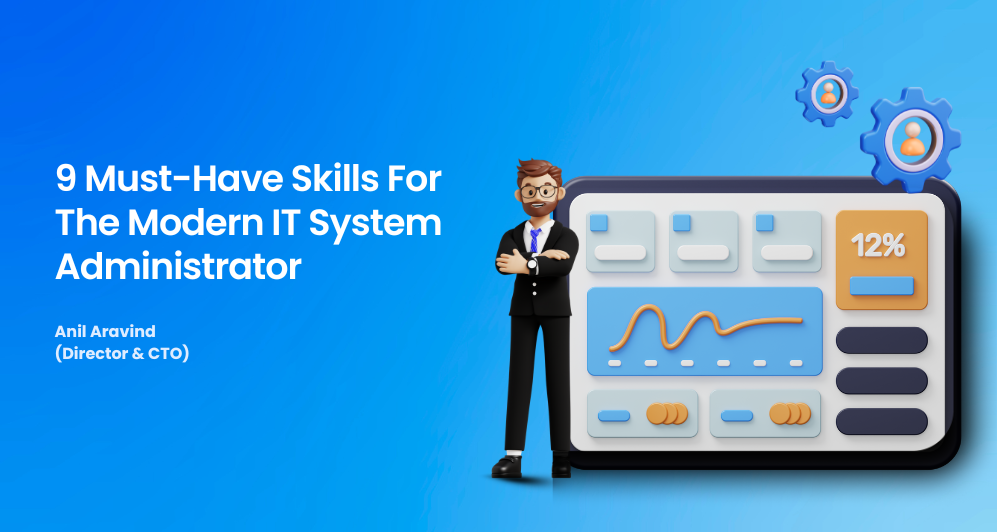
Heading
Lorem ipsum dolor sit amet, consectetur adipiscing elit. Suspendisse varius enim in eros elementum tristique. Duis cursus, mi quis viverra ornare, eros dolor interdum nulla, ut commodo diam libero vitae erat. Aenean faucibus nibh et justo cursus id rutrum lorem imperdiet. Nunc ut sem vitae risus tristique posuere.
Last updated on
October 17, 2025
min read
A cyberattack occurs every 39 seconds, and the stakes for IT teams have never been higher. As businesses accelerate digital transformation and shift to hybrid infrastructures, system administrators are no longer just managing uptime—they're safeguarding sensitive data, enabling seamless operations, and fortifying defenses against evolving cyber threats.
The era of sysadmins working quietly in the background is over. Today’s system administrators are strategic leaders at the heart of resilient IT ecosystems. They align technology with business goals, ensure compliance, and drive operational excellence. Here are nine must-have skills that define the modern system administrator—and why they matter more now than ever.
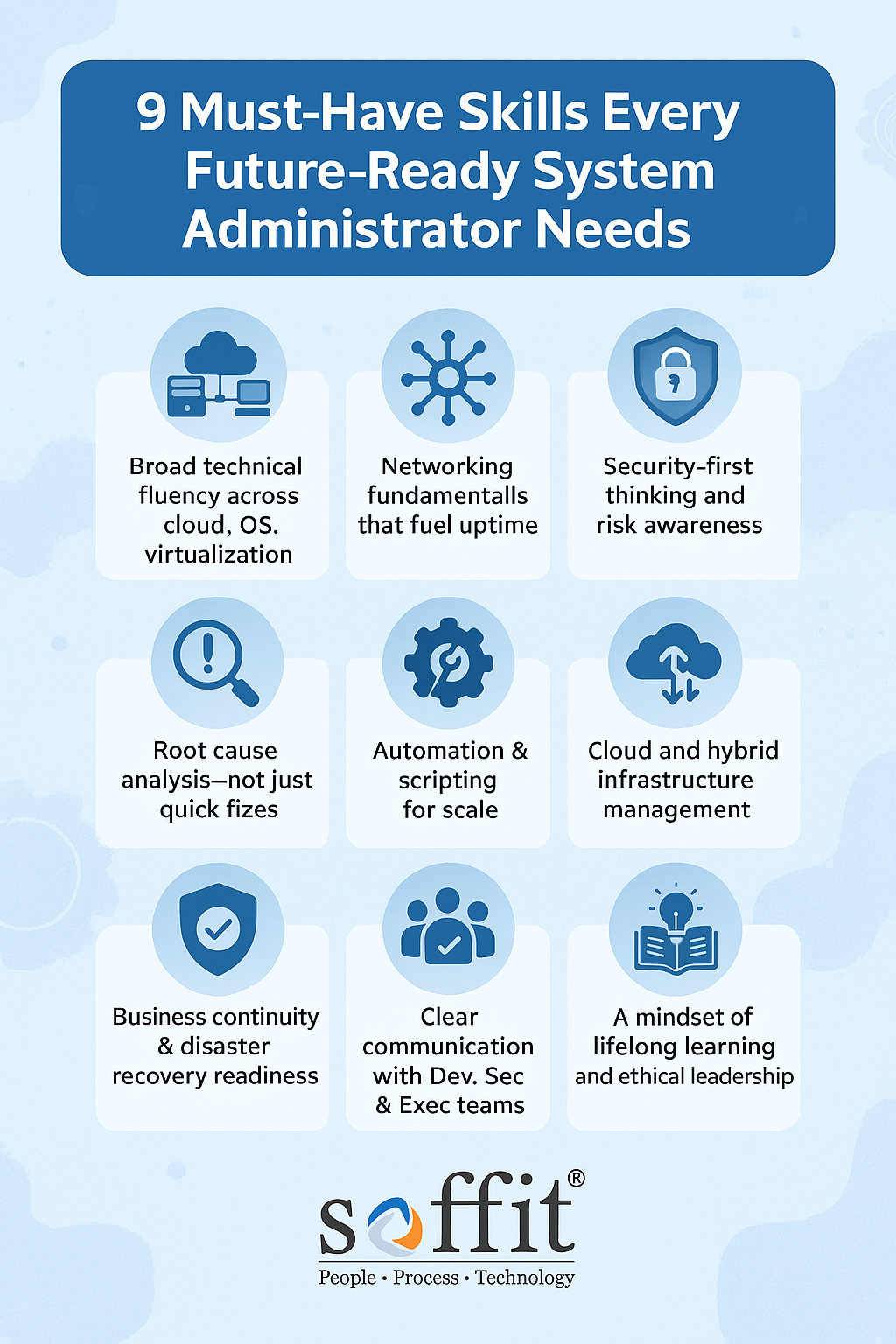
1. Foundational Technical Knowledge Across Infrastructure, OS & Cloud
A modern system administrator must be fluent in multiple tech areas: operating systems (Linux/Windows), storage, virtualization (VMware, Hyper-V),and cloud platforms (AWS, Azure, Google Cloud). The goal isn't to specialize in everything—but to understand how systems interact across the stack.
Why it matters: This foundational knowledge enables better troubleshooting, smarter architecture decisions, and cross-functional collaboration.
2. Strong Networking Fundamentals: TCP/IP, Routing & Troubleshooting
Understanding networking is essential. TCP/IP, DNS,DHCP, routing, switching, and VLANs form the foundation of IT infrastructure. Whether managing on-prem servers or hybrid clouds, networking connects everything.
Pro tip: Master subnetting and packet tracing. These skills help uncover deeper performance or connectivity issues.
3. Security Awareness and Risk Controls for Admins (IAM, Patching, Hardening)
Security is now part of every sysadmin's job. Understanding firewalls, patch management, endpoint protection, identity and access controls, and secure configurations is critical. Beyond implementation, sysadmins must assess vulnerabilities and support compliance initiatives like ISO/IEC 27001 or GDPR.
Best practice: Configure services to work securely by default. A functional setup isn't enough—it must be secure.
4. Root Cause Analysis & Systematic Problem-Solving Skills
Modern IT environments are complex, and when issues arise, quick fixes aren’t enough. A great sysadmin investigates the root cause, documents learnings, and applies preventative strategies.
Mindset shift: View every incident as a learning opportunity. The best admins don’t just fix—they future-proof.
5. Automation & Scripting (Python, PowerShell, Ansible, etc.)
With automation tools, system administrators can replace repetitive tasks with efficient scripts. This reduces human error and frees up time for more strategic work.
Why it’s vital: Automation is no longer a “nice to have”—it’s a competitive necessity in cloud-native and DevOps environments.
6. Manage Cloud & Hybrid Infrastructure: IaC, Kubernetes, Governance
System administrators today must manage hybrid environments spanning on-prem, private cloud, and public cloud. Skills in provisioning, monitoring, and optimizing cloud services are key to modern infrastructure success.
Growth area: Familiarize yourself with infrastructure-as-code, container orchestration (Kubernetes), and multi-cloud governance.
7. Business Continuity Planning & DR for Sysadmins
Business downtime is expensive. A system administrator must be proficient in backup strategies, failover configurations, disaster recovery testing, and documenting business continuity plans.
Pro tip: Design for failure. Assume systems will break and build contingencies to minimize business impact.
8. Collaboration & Communication with DevOps, Security & Stakeholders
Today’s sysadmins must work with developers (DevOps), security teams(SecOps), executives, and vendors. Clear, non-technical communication builds trust and drives better outcomes.
Critical skill: Translate technical concepts into business impact—especially when justifying IT investments or changes.
9. Continuous Learning, Ethics & Innovation in IT
The IT field evolves daily. To stay ahead, system administrators must pursue ongoing education, certifications, and ethical responsibility. Technology isn’t just business-critical—it impacts social services, healthcare, and public infrastructure.
Advice: Learning should be personal, not company driven. Stay curious. Stay accountable. Be ethical.
The Evolving Role of System Administrator: From Operational to Strategic
Automation, AI, and cloud services are reshaping system administration. While some tasks may be automated away, the role of the system administrator is not disappearing—it’s transforming. Here’s how:
- Infrastructure as Code (IaC): Managing infrastructure through code-based provisioning tools help sysadmins automate infrastructure setup, reducing human error and accelerating deployment.
- AIOps: Artificial intelligence will assist sysadmins in predicting failures, correlating logs, and identifying anomalies before they cause disruptions.
- DevOps & Continuous Delivery: Collaboration with developers will grow tighter, with sysadmins managing CI/CD pipelines and shared infrastructure environments.
- Cloud-Native Operations: With cloud environments becoming the norm, sysadmins must manage hybrid setups and optimize cost-performance ratios.
- User Experience & Advanced Support: While chatbots and self-service tools may handle routine issues, system administrators will resolve complex, high-impact problems that require contextual understanding.
- Compliance & Risk Management: Regulatory frameworks like ISO 27001, GDPR, and SOC2 require rigorous system-level oversight. Sysadmins will lead the charge in audit readiness and policy enforcement.
How Soffit Supports Sysadmins
Modern system administrators are the strategic backbone of resilient IT operations. Their ability to simplify complexity, safeguard infrastructure, and ensure business continuity makes them indispensable in today’s high-risk digital environment.
At Soffit, we recognize the critical role sysadmins play. With over two decades of experience and 900+ successful projects across global industries, our ISO/IEC 27001-certified IT managed services and cybersecurity solutions are built to support their evolving needs. From infrastructure design and deployment to continuous monitoring, threat detection, and recovery, we provide the frameworks and tools that enable sysadmins to excel.
Whether you're aiming to reduce downtime, meet compliance requirements, or scale your IT securely, Soffit equips both organizations and their IT leaders to move forward with confidence.
Ready to strengthen your IT foundation? Contact us or book a consultation to get started.
Join our Community
Subscribe for exclusive updates and news.
Read about our privacy policy.



.svg)












.webp)
.webp)
.webp)
.webp)
.webp)
.svg)






.webp)

.webp)












